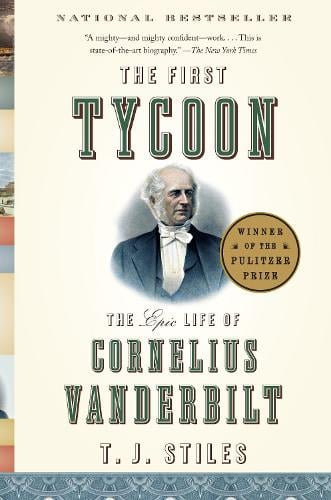The biography highlights Vanderbilt's ascent from a young ferry operator to a dominant industrialist with the largest fortune in the U.S. at his death, crediting his traits of aggressive marketing, shrewd deals, and relentless competition.
The biography details Vanderbilt's early start in business, quitting school at age 11 to work with his father, and rapidly expanding his ferry and steamship operations. It underscores his ability to undercut competition and his strategic vision to expand into railroads, which ultimately made him a pivotal figure in American industrialization. His nickname 'Commodore' and reputation for toughness illustrate his commanding business presence and enduring legacy.
Quick quotes
He earned more than $1,000 in his first year.
Through aggressive marketing, shrewd deals and undercutting the competition—traits that he would practice all his life—he earned more than $1,000 in his first year.
Vanderbilt is deemed one of America's leading businessmen, and is credited for helping to shape the present-day United States.
